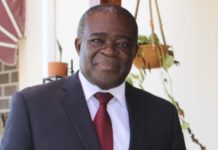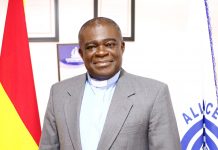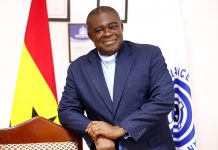|
Getting your Trinity Audio player ready...
|
THE BIBLE AND SOCIAL TRANFORMATION
Obedience to God ensures the well-being of the people of God. In the Lord’s prayer Jesus teaches that the kingdom of God must come and that the will of God must be done on earth as it is in heaven (Matt 6:10). The kingdom and the will of God bring the peace (shalom) and wholeness of God to the people of God which definitely bring both individual and societal transformation.
The Gospel moves its believers towards both personal and societal transformation. In the Book of Romans, the believers are called to be transformed by the renewal of their minds (Roms. 12:2). It is the individual transformed lives that serve as the light and salt of the world by the influences that they bring into society (Matt 5: 13-16). It is a historical fact that some western countries built their economies and communities basing on Christian ethics and principles. Missionary movements in some African communities have developmental trajectories that have made remarkable developmental examples in the provision of schools, hospitals, agricultural best practices, cultural transformation, language development etc. The Christian faith has enough to facilitate and contribute to the quest for social transformations in Africa.
THE SITUATION OF THE CHURCH IN AFRICAN
Christianity has found home in Africa. Not only has the African continent accepted the Christian faith but the continent has also witnessed a tremendous church growth. The phenomenal growth of Christianity on African soil has been scholarly established in the works of Kwame Bediako, Andrews Walls, Asamoah-Gyedu and many more. According to Andrews Walls the center of World Christianity has shifted from the northern hemisphere into the southern hemisphere with Africa being one of the beneficial environments.
CHURCH GROWTH IN FIGURES AND STATISTICS
The growth of the church in Africa is noted in the high numbers in church membership. Churches are recording sustainable increase in church attendance. New congregations are regularly planted both in the rural and urban communities. There are increased church activities that keep some church members in church activities sometimes throughout the week. Healing and Miracle services attract hundreds and thousands of members regularly. Church cathedrals and auditoriums that can take five thousand and some fifteen thousand church attendants are becoming a common phenomenon. There are congregations that are running averagely three to five separate church services on Sundays with each service attracting full capacity of the church facilities. The growth of the church in Africa is further seen in the dominant presence in media. There are churches with television and radio programmes that run twenty-four hours a day with preaching of sermons, demonstration of the power of God and testimonies. Livestreaming of church activities on social media has become a regular feature of church life.
The increased numbers of youth and students in church and church activities has also become very visible. There are students who spend their holidays in church planting and renewal of congregations. Academic campuses i.e. secondary, universities and other professional institutions have become full of Christian activities like all nights’ vigils, prayer and fasting meetings, crusades, musical festivals etc.
The growth of the church in Africa is moreover seen in the efforts of African churches sending missionaries, pastors and apostles into the Northern hemisphere. There are African churches being planted in USA, UK, etc. It is on record that the Church of Pentecost which has its International Headquarters in Ghana has branches in Ninety-Nine Countries around the various continents.
The growth of the church in Africa raises some existential questions that must attract academic, theological and missionary responses. Is there a correlation between church growth and sustainable development in the contexts where church growth takes place? Does church growth in any way facilitate transformation of societies and sustainable development?
A PARADOX OF CHURCH GROWTH (STATISTICS) AND HUMAN DIGNITY?
The massive growth of the church in Africa which has been raised earlier has also raised some pertinent questions. Christianity has witnessed a massive growth in Africa. Africa has also come to be known as the continent with massive poverty, hunger, conflicts, unemployment, corruption etc.
Africa is noted of high illiteracy rates with related challenges of quality and affordability of education. There is lack of quality health care delivery with reports of high rate pregnant women who die at the point of child birth due to challenges to health care delivery. There is high unemployment rates especially among the youth. There are young people with high university degrees without employment. Unemployment challenges have reach a point where some youth can remain unemployed in their whole life time.
Even though calls have been made for the young people to start their own businesses, access to capital for startups is a challenge including cost of doing business. Land accessibility for those who want to go into farming is uneasy. Another side of the youth who want to go into farming to solve their unemployment conditions again is challenges of entering into the market. There are instances where high yields of crops go waste because there were no buyers to buy or the price offered to goods do not break even as far as the cost of production is concerned. There are reports of such young people who have considered suicide as a solution to their plight in the food production business.
There are young people who have become convinced that their African countries do not offer them any hope for the future. They are therefore compelled to consider migration as the option for survival. As a result, there are numerous African young people who in their efforts to migrate to Europe, USA etc. for economic opportunities have ended up dead in the Mediterranean Sea. At the moment it must be noted that the Mediterranean Sea has also come to be known as ‘Mediterranean Cemetery’ due to the number of young people who have drown in the sea whose bodies have not even been found for decent burial and have ended up been buried in the Mediterranean. Some of African youth in their efforts to seek hope and opportunities in countries that they considered hopeful lands have ended up been sold as slaves. A CNN documentary has indicated instances where African young people who are making such efforts have publicly been auctioned as slaves in Libya and other Northern African Countries.
Famine and food insecurity have become a known fact in some African countries like Somalia, South Sudan etc. Various forms of violence, (religious, ethnic, political etc.,) have caused displacements and refugees in some African countries. Weak and failed institutions, corruption, and lack of good governance do not facilitate peace and sustainable development in the continent. It must further be noted that the continent is rich in natural resources which again have come under the manipulation of foreigners who come in to extensively exploit the natural resources with some nationals fronting for them.
TOWARDS A NEW CONVERSATION
The African situation calls for a new conversation among African church leaders. A conversation of translating the massive church growth into peace and sustainable development. A conversation towards making Christian theologies relevant in Africa. A conversation to make the Fatherhood of God meaningful in the continent. In the Lord’s prayer believers are asked to pray for their daily bread. In the face of food insecurity what does it mean to pray ‘give us this day our daily bread’ in Somalia? Who is Jesus the Prince of Peace to blood-shed South Sudan? What does it mean to call the Christian God, ‘The Lord our Healer’ in situations that women are dying during child birth due to lack of available quality health care facilities and high cost of medication? If Jesus came that the People of God will have ‘Life in Fullness’ what does it mean to Africa migrants who are being sold in Libya and others dying in the Mediterranean Sea? The new conversation must be a conversation of hope and human dignity. A conversation that translates faith into action. A conversation of obedience. A conversation that turns African dreams into realties.
A CALL TO CIVIC STEWARDSHIP
The concept of stewardship in the body of Christ is often limited to being effective caretakers of financial resources. However, stewardship is broader than that. Biblical stewardship is the use of God-given gifts and resources e.g. time, talent, treasure, environment, relationships etc,. Christian stewardship involves integrity of creation, peace and development of the society. Civic stewardship is a calling that demands responses. This is the time that the continent is calling for help and hope. The church which has become the center of gravity of the World Christianity must offer hope. Like the Ester of old, who knows that the growth of the church has come about such a time like this for the development of the people of God? Civic stewardship demands the church and church leaders to be willing to leave their comfort zones like Nehemiah to rebuild the walls of the land. It involves praying for the peace of Jerusalem knowing that if it prospers God’s people will also prosper Jer. 29:9 Psalm 122:6
THEOLOGICAL, MISSIONARY AND CHRISTIAN EDUCATION RESPONSES TO THE SUSTAINABLE DEVELOPMENT GOALS AND AGENDA 2063 THE AFRICA WE WANT
Both the United Nations and African Union have identified some developmental goals that are intended to facilitate global and African developments. The seventeen (17) Sustainable Development Goals of the United Nations include 1. No Poverty 2. Zero Hunger 3. Good Health and Well Being 4. Quality Education, 5. Gender Equality, 6. Clean Water and Sanitation, 7. Affordable and Clean Energy, 8. Decent Work and Economic Growth, 9. Industry, Innovation and Infrastructure, 10. Reduced Inequalities, 11. Sustainable Cities and Communities, 12. Responsible Consumption and Production, 13. Climate Action, 14. Life Below Water, 15. Life on Land, 16. Peace, Justice and Strong Institutions, and 17. Partnerships for the Goals.
Similarly, the seven aspirations of the African We Want Agenda includes; 1. A prosperous Africa based on inclusive growth and sustainable development, 2. An integral continent, politically united and based on the ideals of Pan-Africanism and the vision of Africa’s Renaissance, 3. An Africa of good governance, democracy, respect for human rights, justice and rule of law, 4. A peaceful and secure Africa, 5. An Africa with a strong cultural identity, common heritage, shared values and ethics, 6. An Africa whose development is people-driven, relying on the potential of African people, especially its women, and youth, and caring for children, and 7. Africa as a strong, united, resilient and influential global player and partner.
The UN Sustainable Development Goals and the African Union Agenda 2063 do respond to the African development and dignity desires. Deep biblical reflections on the SDG’S and Agenda 2063 also can be concluded as divine and God sent. They do not contradict Biblical responses to human development and needs. African church leaders must make individual and collective commitments to them. The African Christian commitment means that there must be theological, missionary and Christian education responses to the Sustainable Development efforts for the continent. A commitment that actually leaves no one behind.
Commitment towards Relevant Theologies and Christian Education
Relevant Christian theologies are Christian understandings, interpretations and perspectives that respond to the realities and living conditions of the people. Theologies that remain in journals and among the academia cannot be said to be living and relevant theologies. African situations require relevant theologies. Africa churches must offer the people of God relevant theologies in their teachings and Christian education. The Sustainable Development Goals and the African We Want must inform the quest for contemporary relevant African Christian theologies. Teaching and Study materials for Christian education must respond to the sustainable development efforts with the intention to respond to the realities of the people of God in the continent.
Commitment towards African Christian Public Theology
Public theology is Christian perspectives on public policies. It is the engagement of Christian understandings, views and insights on decisions of policy makers and everyday public life realities. It brings Christian faith and beliefs into public life. Public theology is Christian responses to policy issues on peace, sustainable development, good governance, unemployment, etc.
Theological Seminaries and Department of Religious Studies in Universities that are committed to research and teaching of theology and religions in Africa must as a matter of urgency provide adequate attention to African Christian Public Theology. The outcomes of their researches and teachings will provide resources for their community services and church life. Resources must be made available for students and faculty members who want to research into various dimensions of African Christian Public Theologies. Theology must lead the way for the pursuit towards relevant African Christian Theologies. Religious Leaders must consider to integrate public theology into seminary curricula and church programs.
Commitment towards Sustainable Development as Mission Field
Sustainable development of the African continent must be considered as a mission field by the church. It demands identification and training of missionaries that the church sends to meet the challenges of the task. Missionaries that are tasked to work towards the Sustainable development ought to pursue the popularization of the goals and aspirations. The church and other Faith Based Organizations are to develop plan of action for the promotion and implementation of Agenda 2063 and Sustainable development goals and share with their followers and networks.
Churches ought to commit resources and institutional support for the youth and women to take their vital role in the realization of peaceful and sustainable development. African church leadership must demonstrate good practices in the management of church resources for the benefit of members in their communities especially the youth. Church leaders must be catalyst for the economic empowerment of young people and women and not a hindrance to their development. Poverty, marginalization, poor leadership at various levels of the society, corruption and civil wars continue to drive the youth out of Africa. Majority of the African population is made up of the youth and there is the need to give them hope for the future.
Commitment towards Networks and Partnerships
National Christian Councils must consider building partnerships with other ecumenical bodies, faith based organizations civil societies as they work towards sustainable developments. Moreover, there is a need for governments, African Union, donor agencies and the various United Nations agencies to accept to work with Churches as they make the efforts working towards the sustainable developments.
African political, traditional and church leaders will need to consider such partnerships to offer ethical leadership, combat corruption, reduce poverty, promote human rights and protect human dignity. They will need to commit themselves to promote a culture of justice and peace in order to increase their engagements in enhancing democracy and development at the national, regional and continental levels.
Commitment towards Sound and Balance Spirituality
The church’s involvement in sustainable development calls for a deeper and balanced understanding of Christianity spirituality. A spirituality that allows the church to journey with the people of God wherever they are and whatever effects them. It is a spirituality that brings the church outside the cathedral into the market place, hospitals, law courts, farming communities, the roots that Africa migrants travel through, centers of conflicts, politics, business, families and communities.
Wealth creation must not only be pursued in sowing of seeds and payment of tithes in the church but also through hard work, strategic planning, sound work ethics, low interest rates on loans, fair markets and access to European, US etc. markets. A spirituality that do not only keep the people in prayer meetings but also translate faith into action working towards the dignity of the people who put their trust in God. Sound and balance spirituality is what will facilitate the translation of African Christian growth into social transformation and sustainable development of Africa.
Rev Dr Kwabena Opuni-Frimpong (PhD)
Department of Religious Studies
Kwame Nkrumah University of Science and Technology
Kumasi, Ghana
website: kopunifrimpong.org














